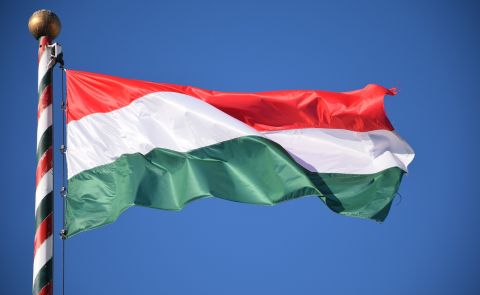
Salome Zourabichvili on Mikheil Saakashvili, EU Candidate Status, Russo-Ukrainian War, and Georgia's Breakaways

On November 21, Georgian President Salome Zourabichvili sat down for an interview with the BBC HARDTalk show.
Regarding the imprisonment of former president Mikheil Saakashvili, when asked why she has not used her authority to free Mikheil Saakashvili, whose failing health has raised concerns for months, President Zourabichvili stated that Georgian law prevents her from doing so because the sentencing process is still ongoing and that a pardon can only be granted once everything has been completed. She said, "I do not believe I have to become a tool for greater polarization. There is almost not one family in Georgia that has not experienced what it meant to have that sort of dictatorial administration." Nevertheless, she emphasized that she does not want an ex-president to die in prison or suffer irredeemable consequences, so she has been very close to monitoring all the medical facts. The President also added that publicly, she has been calling for Saakashvili to be transferred abroad to receive additional treatment, but that is a decision that has to be taken by the Court.
About EU candidate status, when asked why Georgia was not given candidate status like Moldova and Ukraine, President Zourabichvili's stated, "I was disappointed, the Georgian population was disappointed, but at the same time, I think we understood, and they understood, that there was a specific situation in Ukraine. Ukraine got us where we are with the European perspective, and it is clearly linked with the political situation, the military situation of Ukraine, and Moldova." She also acknowledged that Georgia had not met all the prerequisites to be granted due to its stances in the previous year or so on the EU's proposals and the Charles Michel dossier. However, the President emphasized that Georgia must be granted candidate status in 2023, which does not imply membership, as we will have other requirements, more things to fulfill, and more reforms to make. "However, strategically, the EU must say that Georgia is part of this [Associated] Trio that we have created and not something outside that could be an attraction for Russia to play games," President Zourabichvili reiterated, noting that many nations today struggle with democratic achievements. "I would say that today, tomorrow, the decision of the EU has to be a more strategic one than one based formally on criteria," she underlined. "This is not to say that we should disregard democratic reforms or that they are not important, but I think at this time, what is predominant is the strategic issue and the risks of sending Russia the wrong message on Georgia," the Georgian President said.
On the Russo-Ukrainian War, when questioned about Georgia's position on Ukraine, including claims that the country does not support international financial sanctions against Ukraine or that such sanctions are ineffective, President Zourabichvili responded, "That is where I differ from the rhetoric because the facts are very different; Georgia has joined the international financial sanctions." The President continued, "So that is what I say when I say it is a question of rhetoric; I would never say that we are not part of the sanctions," adding that Georgian banks have actually been overly compliant with the sanctions and that the government has additionally supported Ukraine in all international resolutions and formats.
About Russia-Georgia relations, when asked if Russia wants to absorb Georgia, the President responded that it has always been Russia's desire to do so, citing the Russian Empire and the Soviet Union as notable examples of this, as well as Russia's participation in the 1992–1993 Abkhazia War and its subsequent 2008 invasion of Georgia as evidence. "Despite the opposition, it has faced in Ukraine and the fact that Georgia lacks the army, the depth of the land, the human resource, or the military resource Ukraine has," she reiterated. Zourabichvili does not think [that Russia would attack Georgia] at this time. President Zourabichvili acknowledged that given Russia's humiliation and the fact that it is losing this war in many ways at one point, for internal reasons, it could be lured towards making a point over Georgia, where it is simpler, to make some points. As a result, she added, "I think we have to be extremely careful. At the same time, I would say it should in no way define our actions and words, or our orientation toward Europe. Nobody will ever stop Russia from trying something if Russia believes that it is in its best interests at that particular time. However, there are things we can do to make sure that we do not make it easier for them."
Concerning the separatist Abkhazia and the Tskhinvali Region/South Ossetia, the President stated, "Ask every Georgian, and no Georgian will say yes to the subject of whether the occupied areas of Abkhazia and the Tskhinvali region/South Ossetia are lost to Georgia forever." She insisted that since Russia invaded Ukraine, attitudes toward Russia have changed significantly in these enclaves and separatist regions. "I think now, like never before, we are entering a different realm of geopolitics," she added. President Zourabichvili claimed that attitudes towards Russia are changing in light of Russian plans to reduce funding to both regions as well as concerns brought on by discussions over the Bichvinta resort town in response to a follow-up that highlighted Russia's significant financing of those regions, the number of Russian passport holders, and the anti-Georgian statements made by those in charge of the occupied regions.
Read also:
Salome Zourabichvili on Russo-Ukrainian War and Russians in Georgia
Salome Zourabichvili Condemns Russian Missile Strike on Ukraine
Salome Zourabichvili Condemns De-Facto Referendums in Russian-occupied Ukrainian Regions
See Also

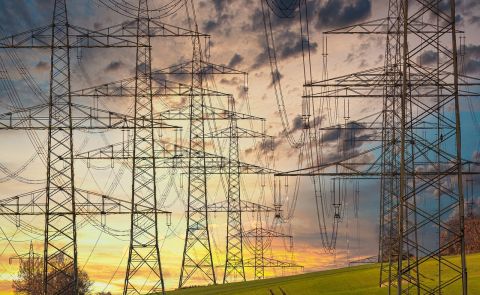
Energy Sector Milestones: Armenia Advances Key Power Infrastructure
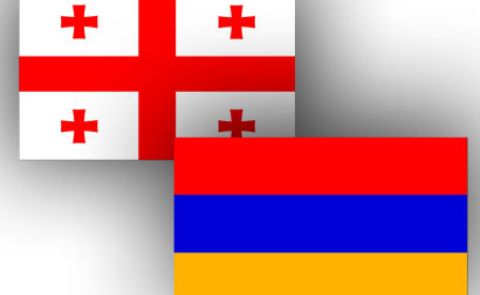
Armenia Temporarily Halts Brandy Exports Amid Georgian Border Congestion
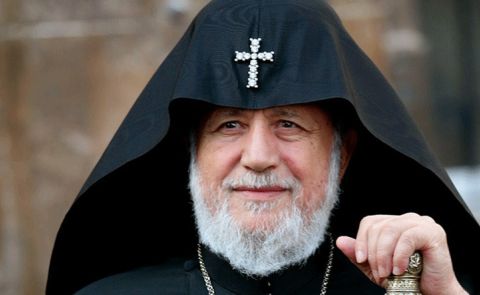
Political and Religious Conflict Intensifies Over Armenian Apostolic Church Leadership
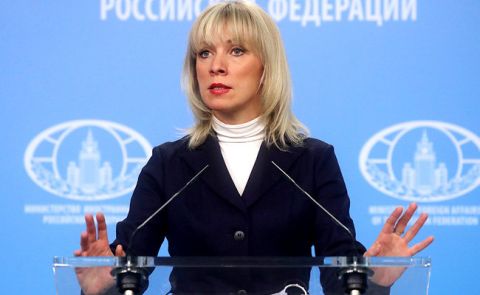
Maria Zakharova Warns Azerbaijan to Respect Russia’s Sensitivities on NATO Expansion, Criticizes EU Mission in Armenia
